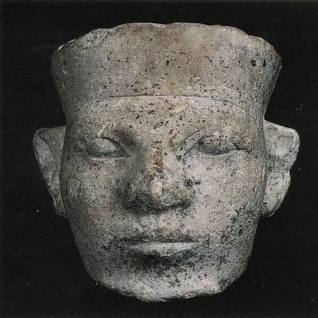
There is a description of Nigeria by a famous economist who has been unjustly ignored by the Nigerian political elite.
According to him Nigeria is a world where it was not the Nigerian elite that ruled under Buhari and Tinubu, but one faction of it: bankers, stock-exchange kings, ….. a part of the landed proprietors associated with them – the so-called financial aristocracy. It sat on the throne, it dictated laws in the National Assembly, it distributed public offices, from cabinet portfolios to Governorships…
The industrial and manufacturing class proper formed part of the opposition, that is, it was represented only as a minority. Its opposition was expressed all the more resolutely the more unalloyed the autocracy of the finance aristocracy became, and the more it imagined that its domination over the ordinary people was assured after the effects of structural adjustment policies in 1990’s.
The middle class of all gradations, and the poor people also, were completely excluded from political power. Finally, in the vocal world of media opposition or entirely outside the political system, there were the journalists and spokesmen of the middle classes and the ordinary people, their professional and educated elites, lawyers, doctors, etc., in a word, their men of talent.
This faction of the elite that ruled and legislated through the National Assembly had a direct interest in the indebtedness of the state. The state deficit was really the main object of its speculation and the chief source of its enrichment. At the end of each year a new deficit. After the lapse of three or four years a massive new International loan. And every new loan offered new opportunities to the finance aristocracy for defrauding the state, which was kept artificially on the verge of bankruptcy by failure to collect taxes from the finance aristocracy or multi-nationals – it had to negotiate with the international bankers or IMF under the most unfavorable conditions. Each new international loan gave a further opportunity, that of plundering the public, the secrets of which the government and the majority in the National Assembly were privy to. The enormous sums which in this way flowed through the hands of the state facilitated, moreover, swindling contracts for deliveries, bribery, defalcations, and all kinds of roguery.
The defrauding of the state, practiced wholesale in connection with international loans, was repeated retail in public works. What occurred in the relations between National Assembly and the Executive became multiplied in the relations between individual Ministries and individual entrepreneurs.
This ruling elite exploited the infrastructure and public works in the same way it exploited state expenditures in general and International loans. The National Assembly piled the main burdens on the state, and secured the golden fruits to themselves and their friends in the finance aristocracy.
On the other hand, the smallest reform was wrecked through the influence of the bankers. For example, the reform of the power supply. Behind the scenes, the financial aristocracy protested. Was it permissible for the state to curtail major sources of revenue through the importation of diesel generators?
The Buhari/Tinubu administration was nothing other than a joint stock company for the exploitation of Nigeria’s national wealth, whose dividends were divided among ministers, members of the National Assembly, and the financial aristocracy.
Since the finance aristocracy made the laws, was at the head of the administration of the state, had command of all the organized public authorities, dominated public opinion through the actual state of affairs and through the press, the same prostitution, the same shameless cheating, the same mania to get rich was repeated in every sphere, from the National assembly to Ogogoro bars, to get rich not by production, but by pocketing the already available wealth of others. Clashing every moment with the country’s laws passed by themselves, an unbridled assertion of unhealthy and dissolute appetites manifested itself, particularly at the top of Nigerian society – lusts wherein wealth derived from gambling naturally seeks its satisfaction, where pleasure becomes debauched, where money, filth, and blood commingle. The finance aristocracy, in its mode of acquisition as well as in its pleasures, is nothing but the rebirth of the scum of society on the heights of elite society.
And the nonruling factions of the Nigerian elite cried: Corruption! The people cried: Down with the Big Thieves!
To be frank, the above accurate description of Nigeria did come from a famous economist but it was a description of France circa 1850, shortly before a massive social eruption. I have taken the text from ‘Class Struggles in France 1848-1850’1, changed France for Nigeria and made some other minor edits.
We have a political elite that does not read, does not study history and therefore is actually a greater failure to Nigeria than the section of the elite called the financial aristocracy. When a political elite and its associated intellectual class have no idea what is happening and think there is something specifically ‘Nigerian’ about the current situation, then we have a group of deluded fools. How can a society survive such a catastrophic failure?
Endnotes
1. (Marx, 1850 Part 1)
References:
Marx, K. (1850). The Class Struggles in France, 1848 to 1850—Part I. Neue Rheinische Zeitung Revue. https://www.marxists.org/archive/marx/works/1850/class-struggles-france/ch01.htm#n2

